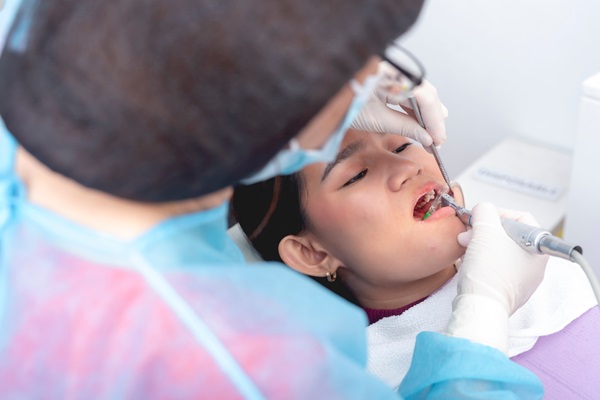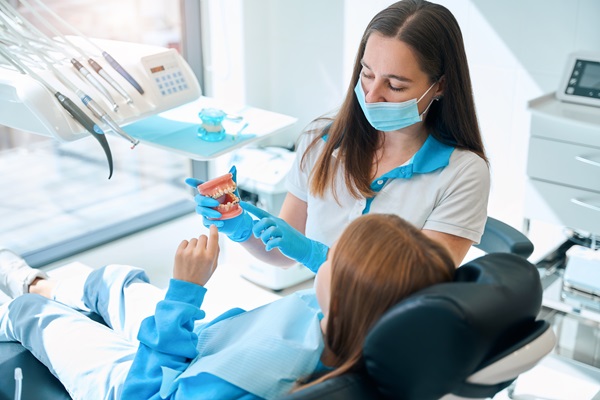 A knocked out baby tooth can result from a collision, fall, or game. It can be devastating to see your child come to you with a tooth gap. The first thing to do is stay calm. Caring for the tooth is important for re-implantation. If you want to know how to care for your child’s knocked out tooth, here are the details.
A knocked out baby tooth can result from a collision, fall, or game. It can be devastating to see your child come to you with a tooth gap. The first thing to do is stay calm. Caring for the tooth is important for re-implantation. If you want to know how to care for your child’s knocked out tooth, here are the details.
What to do if a child gets a tooth knocked out
Staying calm is the most important thing to do when a child has a knocked out baby tooth. Checking the child for signs of pain is important. The child may not be aware of what happened. Getting in touch with the pediatric dentist is important. Going to the clinic will allow the dentist to examine the child and the knocked out baby tooth.
Rinsing the child’s mouth right away can remove some debris and blood. Giving the child sterile gauze to bite on can help reduce the bleeding. Placing a cold compress on the specific side of the face can help bring the swelling and pain down. Keeping the knocked out baby tooth in milk while in transit to the dentist will keep it moist.
Handling a knocked out baby tooth
Seeing the dentist within one to two hours of the incident can provide relief right away. Bringing the knocked out baby tooth can help the pediatric dentist determine if it is still implantable. Keeping it in milk will keep it moist. Do not panic if the tooth is lost.
The dentist can re-implant the tooth if it is still possible. Leaving it in the hands of the dentist will keep the emerging permanent tooth intact. The pediatric dentist can provide more instructions over the phone. Home care may come first. The dental visit can happen in a few days.
A knocked out baby tooth is not an emergency case. Primary teeth do not have long roots to keep them in position yet. That is why it is easy to knock them out. A knocked out baby tooth does not often cause damage to soft oral tissues.
Most dentists do not re-implant the baby tooth. Instead, the dentist will place a space maintainer in the tooth gap to help preserve the space when the permanent tooth comes out. This device will prevent the neighboring teeth from moving into the space. It can also prevent dental pain from shifting. A space maintainer can also prevent bite and jaw problems.
Possible complications
Keeping an eye on the area where the knocked out baby tooth was attached is vital as well. There could be signs of nerve damage or infection. These signs could show up much later. Bringing the child to the dentist can treat the damage or infection right away.
A baby tooth is important in the development of the permanent tooth. Early tooth loss can cause different changes in the biting and jawbone patterns. The child’s jaw may not form the right way. The permanent tooth may not have enough room to develop. The child may also need orthodontic treatment later in life.
Handling a knocked out baby tooth situation can help maintain your child’s dental health
This type of incident does not need an emergency visit. The priority is to reduce the pain, swelling, and bleeding. The pediatric dentist will examine the area of the knocked out baby tooth. Keeping the dental gap with a space maintainer can help the permanent tooth emerge without issues.
Request an appointment or call Nett Pediatric Dentistry & Orthodontics at 623-759-7658 for an appointment in our Phoenix office.
Recent Posts
Cavity treatment for kids is a chief concern among parents, and for a good reason. Cavities are common in children of all ages. According to the Centers for Disease Control and Prevention, over half of the kids ages 6 to 8 have had at least one cavity in a primary tooth. The good news is…
Pediatric dentistry focuses on the oral problems that occur in children. Many dental issues in kids are similar to those that occur in adults. Without proper treatment, dental problems can progress to misaligned teeth and poor oral health. If you want to maintain your child’s dental health, here are the common dental issues that pediatric…
In their early years, your youngster is still a novice in brushing and flossing their teeth, meaning that cleaning your child's teeth in that period is your responsibility. Cleaning the teeth is a skill that the child should learn. Your role is to educate your youngster on how to keep their mouths clean and healthy.…


